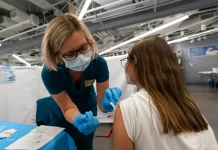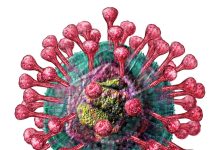On Friday evening, the US Food and Drug Administration authorized the first Covid-19 vaccine, developed by Pfizer and BioNTech, for emergency use.
Biotech companies, which first saw potential in the new mRNA technology to treat cancer or rare diseases, soon realized after disease outbreaks such as the H1N1 influenza that they could to create platforms in which genes for any virus could be plugged in that would rapidly generate vaccine candidates.
Their work was bolstered by an important but little-known agency, the Biomedical Advanced Research and Development Authority (BARDA), created in 2006 to prepare and stockpile vaccines against bioterrorist agents, smallpox and anthrax.
BARDA seeks to support the advancement of medical innovation, including new vaccines for emerging virus, and has funded companies developing these new platforms in early stages to accelerate the process.
Based on knowledge of the SARS-associated coronavirus, scientists guessed the key Covid-19 protein to be targeted by vaccines and, using genetic engineering, plugged the key genes into their new platforms and showed they were safe in animals and effective at preventing disease.
Thus, the planning for new Covid-19 vaccines occurred long before the virus was known to exist and the technical knowledge of the platforms paid off to enable creation of vaccines in record time.



















